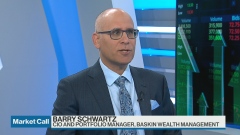Jun 20, 2023
RBC faces pressure on capital as Canada regulator gets tougher
, Bloomberg News
Finance expert on impact of longer mortgage amortizations
Royal Bank of Canada is under new pressure to bolster its capital levels after the country’s financial regulator raised the minimum buffer for the largest banks.
Canada’s six biggest domestic banks must have a common equity tier 1 capital ratio of at least 11.5 per cent by November, the Office of the Superintendent of Financial Institutions said Tuesday. Its decision to boost the requirement from 11 per cent forces banks to build a larger rainy-day fund to absorb losses heading into a possible recession.
In practice, OSFI’s rule means banks will want to operate with a CET1 ratio of 12 per cent or more. RBC’s is expected to fall to about 12 per cent from 13.7 per cent when it completes its $13.5 billion (US$10.2 billion) deal for HSBC Holdings Plc’s Canadian unit, now expected in early 2024.
“It was something that came a bit earlier than expected,” Keefe, Bruyette & Woods analyst Mike Rizvanovic said of the regulator’s higher capital requirement.
In a note to clients, Rizvanovic said the new rule is a “negative surprise” for investors and will place “added pressure” on RBC. Canadian Imperial Bank of Commerce also faces additional scrutiny with the lowest CET1 ratio of the six banks at 11.9 per cent.
CIBC is “most at risk of a capital shortfall, although we don’t believe any of the Big Six will need to raise equity to meet the new minimum unless there is meaningful deterioration in the economy that results in a sizable increase in risk-weighted assets,” the KBW analyst wrote.
“It’s a tie on who’s the least capitalized right now,” iA Investment Management portfolio management Daneshvar Rohinton said of CIBC and RBC. Like Rizvanovic, he doesn’t see an equity raise coming from either bank because they have six months to build up capital through retained earnings before the new capital requirement takes effect.
RBC’s current ratio is “well above regulatory minimums,” spokesperson Gillian McArdle said. “We continue to prudently manage our capital taking into account multiple factors, including OSFI’s latest DSB requirement,” she said. A spokesperson for CIBC did not immediately respond to requests for comment.
Bank stocks slid in Toronto as investors weighed the new capital levels. The S&P/TSX Commercial Banks Index fell 0.9 per cent. Shares of all six major banks declined, led by CIBC’s 2.1 per cent drop.




